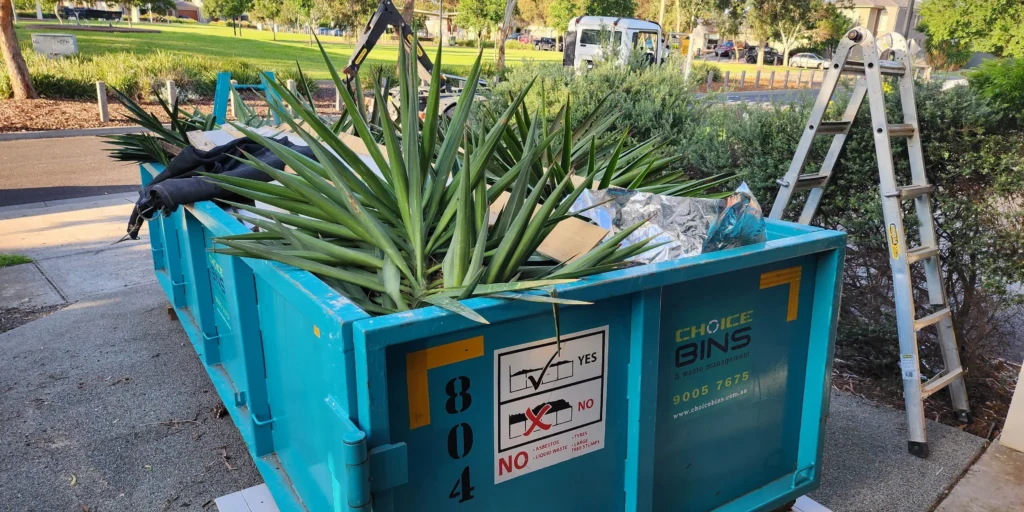The role of landscaping goes far beyond the concept of making the world outside more appealing. It is a lot about the preservation of the environment from the point of immediate view to the end effects. An essential aspect of sustainable landscaping includes the green waste recycling process. Responsible green waste management through reprocessing and reuse will cut environmental impact, enrich the soil, and eventually enhance the quality of surroundings, including the ecosystem. We aim to elaborate on green waste recycling’s role in landscaping and its more significant impact through skip bin hire.
What is classed as green waste?
It is essential to recognise what is recyclable and to put it in the right place because it is the primary requirement for efficient recycling. Green waste consists of organics and garden materials; if you find it in your garden, it must be automatically considered green waste, and so on. This includes things such as:
- Grass clippings
- Hedge
- Trimmings
- Branches
- Plants
- Flowers
- Leaves
What is Green Waste Recycling in Landscaping?
Green waste recycling starts in landscaping by accepting organic materials like grass clippings, leaves, branches, and any plant debris gathered in landscaping and garden maintenance. In this case, green waste is not left in landfills, which may undergo a process of methane production and environmental degradation. Still, instead, it is converted into compost or mulch. The mulch or compost generated from these processes can later enrich the soil, cultivate plants, and even boost the landscape’s health.
Importance of Green Waste Recycling
Composting, mulching, and anaerobic digestion represent the recycling of green material and food waste, and the produced fuels and sustainable energy can be directed for ecologic purposes. Apart from the state and municipal schemes, most businesses are opting to set up plants to accommodate the organic waste and have the compost and mulch. Green waste can be removed from regular trash and be recycled, composted, or repurposed for use in other ways.
Composting defeated by altered composting facilities would also go through anaerobic digestion. This further non-wasteful end product serves as fertiliser and soil amendment. It could be used as a daily lid over landfills to save virgin soil cover materials. It is a process for dust control, a preventative measure against soil erosion, and weed suppression after mulching from wood chips and green waste. It is a medium for growing plants and carrying out agriculture. It may be a basis for creating biofuel or other renewable energy sources.
The Environmental Benefits of Green Waste Recycling in Landscaping
1. Reduced Environmental Impact: One of the most valuable functions of recycling green waste in landscaping is reducing the volume of organic materials sent to landfills, eventually decreasing methane and excessive pressure on the cost of waste management infrastructure. Preventing green waste from entering landfills contributes to maintaining the environment healthy, and valuable landfill space becomes richer in landscaping.
2. Soil Enrichment: Urban compost is a laboratory of natural fertiliser with many trace elements and minerals that improve soil structure and condition. Rich soil acts fundamentally as a sponge for water, preventing soil erosion, and at the same time, creates a fertile ground where plants thrive. This is one way through which landscapers can improve soil health and, at the same time, provide these landscapes with a natural source of nutrients by cutting down on chemical fertilisers, which naturally offer them.
3. Promotion of Biodiversity: Landscapes enriched with composted green waste provide food for insects, microorganisms, and small animals. Using this, the biodiversity of green waste recycling is critical to the stability of ecosystems and ecological systems’ homeostasis.
4. Conservation of Resources: Recycling green waste ensures the resilient use of resources by linking up the nutrient cycle of its organic matter, rather than depending exclusively on synthetic fertilisers and soil amendments, as landscapers could use better the composting of green wastes to provide the plants with all the nourishment required while resulting at the same time in lower chemical input consumption as well as more environmentally friendly practices.
The Role of Skip Bins in Green Waste Recycling in Landscaping
The skip bin hire Melbourne plays a vital role in green waste recycling in landscaping since it makes it unnecessary for people to collect and carry waste materials, and, in addition, it saves time and labor losses. Here’s how cheap skip bin hire makes a difference:
- Convenience: Skip bins are a convenient way for landscapers to remove green waste. Using a local skip bin hire means the landscaper does not have to go through the hassle of transporting the waste to disposal sites alone. Owning a trash bin can help gardeners bottle up green waste from the site, which will be picked up by recyclers who either produce compost from the trash or recycle it for other better uses. This arrangement saves time and energy.
- Segregation and Sorting: Mini skip bin hire helps segregate and sort out different types of waste, including green waste, to ensure that recyclable items are diverted and put into operation facilities that otherwise would have been disposed of in landfills. Consequently, it facilitates the recycling of materials, ultimately promoting ecosystem restoration.
- Cost-Effectiveness: Hiring large skip bin hire for recycling in landscaping will help cut the cost for most landscapers, especially on big projects. Efficient managing commercial waste disposal with skip bins will minimise landscapists’ operation costs and maximise their profits. It will help them to provide excellent service to consumers.
- Compliance with Regulations: These bans are often monitored by a local government or regulatory agency because they can harm the ecosystem and human health. Services provided by using skip bins for green waste recycling meet the regulations, and the landscaper can prove a commitment to green waste recycling.
Conclusion
Green waste recycling is vital in creating sustainable landscaping by reducing environmental pressure, strengthening soil quality, and supporting biodiversity. Melbourne skip bin hire are essential in collecting and recycling green waste. Hence, landscapers can use minimal resources, enhance environmental conservation, and promote a more health-friendly environment. With the increasing awareness of sustainable landscape maintenance, composting waste and using skip bins will always be a must and the key to creating landscapes that nurture the environment and defy beauty.
Choice Skip Bin Hire Melbourne is a leading family-owned business in Australia with many years of experience in the waste and recycling industry. We provide reasonable skip bins for hire with trustworthy, friendly service.







